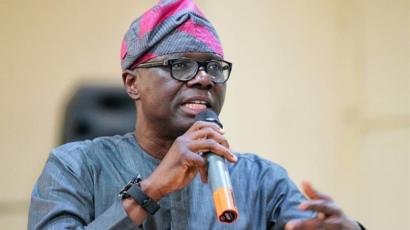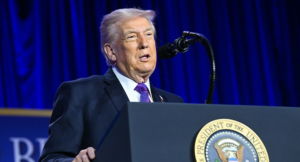
The Lagos State Governor, Babatunde Sanwo-Olu said the state is poised to harness frontier technologies to achieve sustainable development, while mitigating their adverse economic, social and political consequences.
He spoke at the World Habitat day in Lagos with the theme “Frontier technologies as innovative tool to transform waste to wealth”. The event was attended by professionals, officials of UN Habitat, members of the National Assembly, Commissioners, captains of industries and others. The governor who was represented by his Deputy, Dr Obafemi Hamzat, said effective management of waste is now a global priority and must not be discountenanced.
He said: “It is now important to view ‘waste’ as a valuable resources that can be turned to wealth, through technology. It offers the potential of better, cheaper, faster, scalable and easy to use solutions for everyday problems. This innovative approach will address all areas of the waste hierarchy; reduction, reuse, recycling, recovery and disposal. We believe that with innovative and technology driven waste management system, cities can resolve not only the challenges, but also create employment, promote growth, improve health and ecosystems which in turn contributes to happier, greener and healthier cities”.
He regretted the strategic position of the state that serves as the economic and industrial hub which has according to him unfortunately resulted in the continuous migration of people seeking greener pastures. Sanwo-Olu said it has come with its attendant consequences on waste generation and management.
The governor revealed that he is committed to ensure a cleaner and healthier environment, by re-energising the solid waste management sector and promoting the concept of reduce, reuse and recycle.
He said they have further spread the gospel of ‘blue box initiative’ through the State waste management agency and introduced innovative community approach to waste management to strategically manage solid waste.
UN-Habitat Executive Director, Maimunah Mohd Sharif said the yearly celebration affords the UN body an opportunity to think about how there can be real changes in cities and towns that people live in.
He observed that as hubs of innovation and creativity, cities are the best place to come up with solutions, he pledged the preparedness of the agency to sustain urbanization. The Executive Director who was represented by Mr. Paul Okunlano from the Communication Department said this year’s theme can only come to reality if countries rethink the entire waste management cycle.
According to him if this is achieved, nations will be able to resolve not only the challenges of inadequate waste management but also create employment, promote economic growth, improve public health, ecosystems and combat climate change.
The greatest impact will come from changing the way we generate waste and reducing the amount that we produce, wastes can be reduced, reused and we can also recycle what we really do not need he added.
He called for new materials that are biodegradable and recycled material that can replace raw materials for various applications. He advised that 3D printing can improve efficiency in manufacturing by reducing waste and can reuse waste plastics for the printing process.
Guest Speaker, Senator Opeyemi Bamidele said frontier technologies can play a key role in innovating waste management by using new materials such as sustainable polymers in production to avoid waste generation but generate recyclable waste. He called for innovative partnerships such as formalizing ‘waste pickers’ organizations, relationship with local governments by giving them access to health care education and other services.
Earlier, Commissioner for Physical Planning and Urban Development, Dr Idris salako said the theme of this year’s UN Habitat day is a clear indication that the world has not for once stopped devising strategies towards making life better for all noting that waste is an inevitable natural occurrence.
He maintained that the state is aware of the degree or choice of management, mitigation and adaptation needed because the state is privileged with the benefit of hindsight to explore advanced technologies to effectively surmount the challenges.
He further pledged the preparedness of the state to contribute frontier technologies to achieve sustainable waste management.









